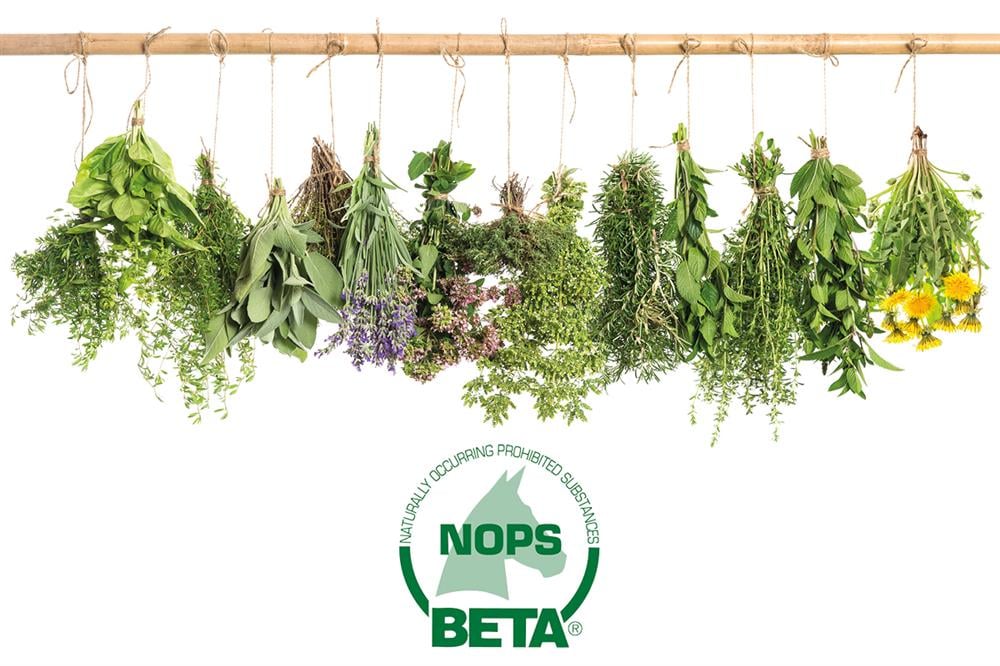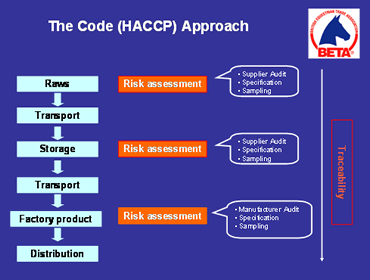NOPS – What are they and why must they be controlled?
Here at Feedmark we are proud to be part of the BETA NOPS Quality Assurance Scheme but what does this actually mean and why is it important?

So what exactly are NOPS?
NOPS stands for Naturally Occurring Prohibited Substances. A prohibited substance is defined as “any substance that can exert an effect on your horse”. A naturally occurring prohibited substance (NOPS) can be naturally found in certain ingredients or can occur due to accidental cross contamination whilst being processed before it reaches the feed manufacturer. In 2009 the British Equestrian Trade Association (BETA) created a scheme to reduce the risk of NOPS in equine feed and supplements.
Below are the names of some NOPS and where they come from.
The main NOPS are:
|
Name |
Source |
|
Caffine |
Cacao |
|
Theobromine |
Cacao (found in chocolate) |
|
Theophylline |
Tea |
|
Morphine |
Opium poppy & Papaver somniferum |
|
Hyoscine |
Nightshade & Datura |
|
Hordenine |
Germinating barley |
|
Atropine |
Nightshade – Atropa belladonna |
There are two categories of herbal supplements. Those which are high priority are completely banned from any horse supplement/feed. These include:
|
Name |
Source |
|
Cathinone/Cathine |
Khat |
|
Digitoxin |
Foxglove (Digitalis sp.) |
|
Ephedrine/Pseudoephedrine |
Ephedra sp. |
|
Reserpine |
Indian snake root & Devil’s Pepper (Rauvolfia sp.) |
|
Synephrine |
“Bitter” orange cultivars (Citrus sp.) |
Then there are low priority ones which can be found in supplements however they are banned from use in competition by the FEI and BHA (British Horseracing Authority). If found in the horse’s system, elimination will occur, and the consequences are tough.
|
Name |
Source |
|
Harpagosides |
Devil’s Claw |
|
Salicylic acid |
Willow bark & Meadow Sweet |
|
Valerenic acid |
Valerian (Valeriana Officinalis) |
|
Yohimbine |
Yohimbe tree (Rauvolfia sp.) |
Low priority substances on the list must be clearly labelled on packaging and are permitted but limited to horses who are NOT competing.
How can contamination occur?
From being grown, harvested, stored, transported, processed, distributed and stored at the other end, contamination of NOPS can occur at any stage. As a result, it is important to carry out risk assessments at various stages, this will also aid traceability of the product if a problem was to occur.
Below shows at which stages the protocols are carried out in the Hazard Analysis of Critical Control Points (HACCP):
 Image: beta-uk.org
Image: beta-uk.org
It must be noted that having a product made in a NOPS accredited manufacturing plant does NOT mean that the company selling the product is NOPS accredited. A list of all the NOPS approved companies can be found here.
Why is the BETA NOPS Scheme so important?
The use of NOPS can be seen to provide horses with an unfair competitive advantage to those not consuming NOPS. It is therefore vital to reduce the risk of disqualification from naturally occurring prohibited substances in feed by minimising the chance of contaminations. This in turn will ensure that feed and supplements are competition legal. This is of high importance to owners of competition horses as they can rest assured that by purchasing feed or supplements that is BETA NOPS accredited, it will not contain any harmful or illegal ingredients.
How can you minimise the risk of NOPS?
- Look out for the BETA NOPS logo when purchasing any feed or supplements.
- Make sure feed/supplements come in a correctly sealed container.
- Make a note of the batch numbers for traceability.
- Keep a sample of each feed/supplement on delivery for at least 2 months after consumption in case of further investigations.
- Avoid eating, drinking and smoking in stables and feed rooms.
- Store any medicines and first aid products safely and clean any feed buckets after use if they have been used to administer medicine.
- Keep only horse and pony feed in your feed room.
A useful information sheet on how to avoid NOPS can be found here.

